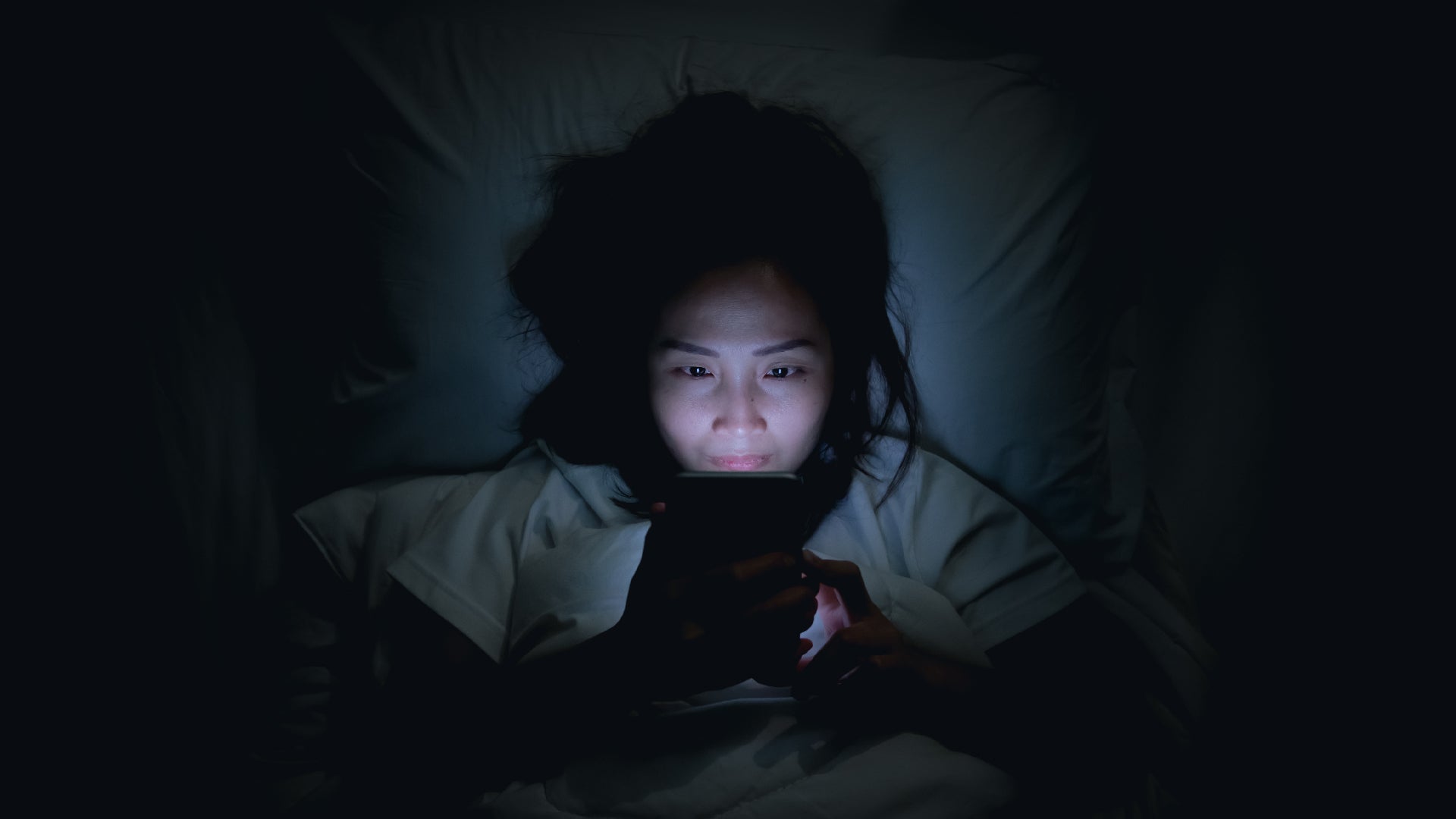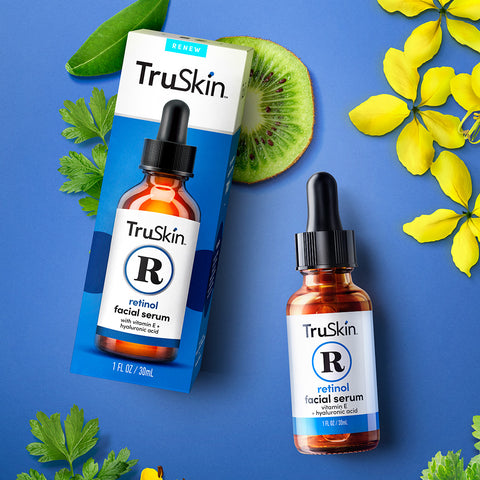
Should You Be Concerned About Blue Light Skin Damage?
Listen up, y’all. It’s time to step up your protective skincare game to ensure your regimen is doing its best to protect your complexion against the woes of blue light damage.
Knowledge of UV radiation and its damaging effects on your skin are pretty well-known among all you skincare aficionados. But while UVA and UVB continue to do their worst on your lines and wrinkles, another type of light has been brought to, er, light recently.
Say hello to high energy visible light, otherwise known as blue light. But what is this mysterious blue light all about and what does exposure to it mean for the health of your skin?
Here’s what we know…
What Is Blue Light?
Known in the biz as high energy visible (HEV) light, blue light is part of the visible light spectrum (think ROY G BIV). This means that unlike ultraviolet light, which is invisible to the naked eye, you can see it.
Blue light has the shortest wavelength and highest energy of all the colors in the visible spectrum and has been proven to boost your mood, improve memory and increase mental alertness. However, it has also been linked to eye damage and, according to the Centers for Disease Control and Prevention (CDC), if you expose your body to blue light late at night, it throws off your circadian rhythms, affecting your sleeping patterns and making it difficult to fall and stay asleep.
Of course, blue light also affects your skin. More on that in a minute…
Where Does Blue Light Come From?
The majority of blue light you're exposed to comes from the sun. However, it's not the only thing at work here because smartphones, computers, TVs and other digital devices are also major sources of artificial blue light.
Now, don’t get us wrong, being in the great outdoors and experiencing the benefits of natural blue light during the day is awesome for your mental wellness. Some experts even go so far as to say it’s something you should try to get more of. But as you know, when it comes to your skin, the sun is not such good news. In fact, it's one of the main offenders when it comes to aging concerns like dark spots, premature wrinkles and sagging skin.
The thing is, artificial blue light is just as worrying for your skin as the natural stuff. Recent statistics from DataReportal show that the average American spends more than seven hours looking at some kind of screen every day. What’s more, an average adult looks at their smartphone around 60 times a day, and 40 percent check their phones in the middle of the night.
All this adds up to a helluva lot of unnecessary blue light exposure. All. Day. Long. So, it’s no wonder that it's become a bit of a concern.
How Does Blue Light Affect Your Skin?
Just like UV radiation, research shows that blue light causes oxidative stress in the skin thanks to rogue free radicals overwhelming your skin cells, damaging DNA and compromising the production of collagen and elastin. This is a major concern for your skin because free radical damage leads to inflammation, weakens your barrier function and accelerates aging, causing your skin to lose elasticity, strength, firmness and its smooth, even tone and texture.
Some experts even believe that because blue light’s high energy allows it to penetrate more deeply into the skin, it has the potential to be way more damaging to your collagen and elastin fibers than UV radiation.
Mic drop.
What Are The Best Ways To Protect Your Skin From Blue Light Damage?
Blue light skin damage isn't an immediate thing, but with more time being spent in front of digital devices than ever before, it could easily catch up with you.
Unless you get ahead of the game, of course. Here's how...
1. Limit Your Screen Time
The modern world makes it difficult not to be in front of a screen all day long but if you work at a computer from 9 to 5, ensure you take plenty of breaks. And during these breaks, don’t head straight for your phone. Instead, get outside for 10 minutes, make some coffee or read a book. And no, reading something on your Kindle does not count!
2. Avoid Using Digital Devices Before Bed
Studies show that exposing your skin to blue light late at night throws it out of whack, making it ‘think’ it’s still daytime. This compromises your overnight skin regeneration process which is a valuable time for healing and repairing.
Try to avoid looking at your smartphone, laptop or tablet for at least two hours before you go to sleep. Come on, your skin needs you.
3. Make The Most Of Night Mode
While light mode is the default setting for most phones and laptops, night (or dark) mode is a great way to reduce the amount of blue light emitted, so set your phone to night mode right this minute – it should be pretty easy to find in your settings. Also, if you work long hours at a computer, think about investing in a blue light screen filter. It'll really help minimize exposure.
4. Apply Topical Antioxidants Morning & Night
When it comes to your skincare routine, topical antioxidants like niacinamide, retinol and vitamins C and E offer awesome protection from blue light.
Antioxidants help reduce oxidative stress because they’re able to neutralize damaging free radicals before they get a chance to do a number on all those essential proteins your skin needs.
We have a whole bunch of fabulous antioxidant serums for all skin types but if you’re looking for a real goodie that specifically targets blue light damage as well as other environmental nasties, try our Rejuvenating Longevity Serum. This beautifully lightweight serum contains lingonberry stem cells which have been shown to offer a fantastic shield against the perils of blue light.
5. Continue With Broad-Spectrum Sun Protection
Sunscreen will always remain your BFF when it comes to protecting your skin from any kind of photodamage.
Apply a high factor, broad-spectrum formulation like our SPF 30 Mineral Sunscreen generously and daily. Our sunscreen contains physical blockers like zinc oxide or titanium dioxide which are currently the only two active sunscreen ingredients deemed safe and effective by the FDA.
Experts also believe physical sunscreens like these are more likely to reflect blue light from the skin’s surface than chemical sunscreen ingredients. Good enough for us.

















